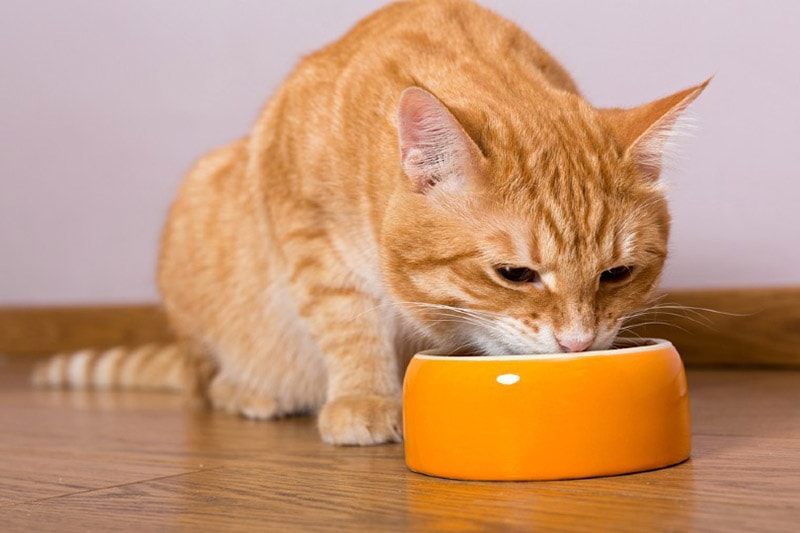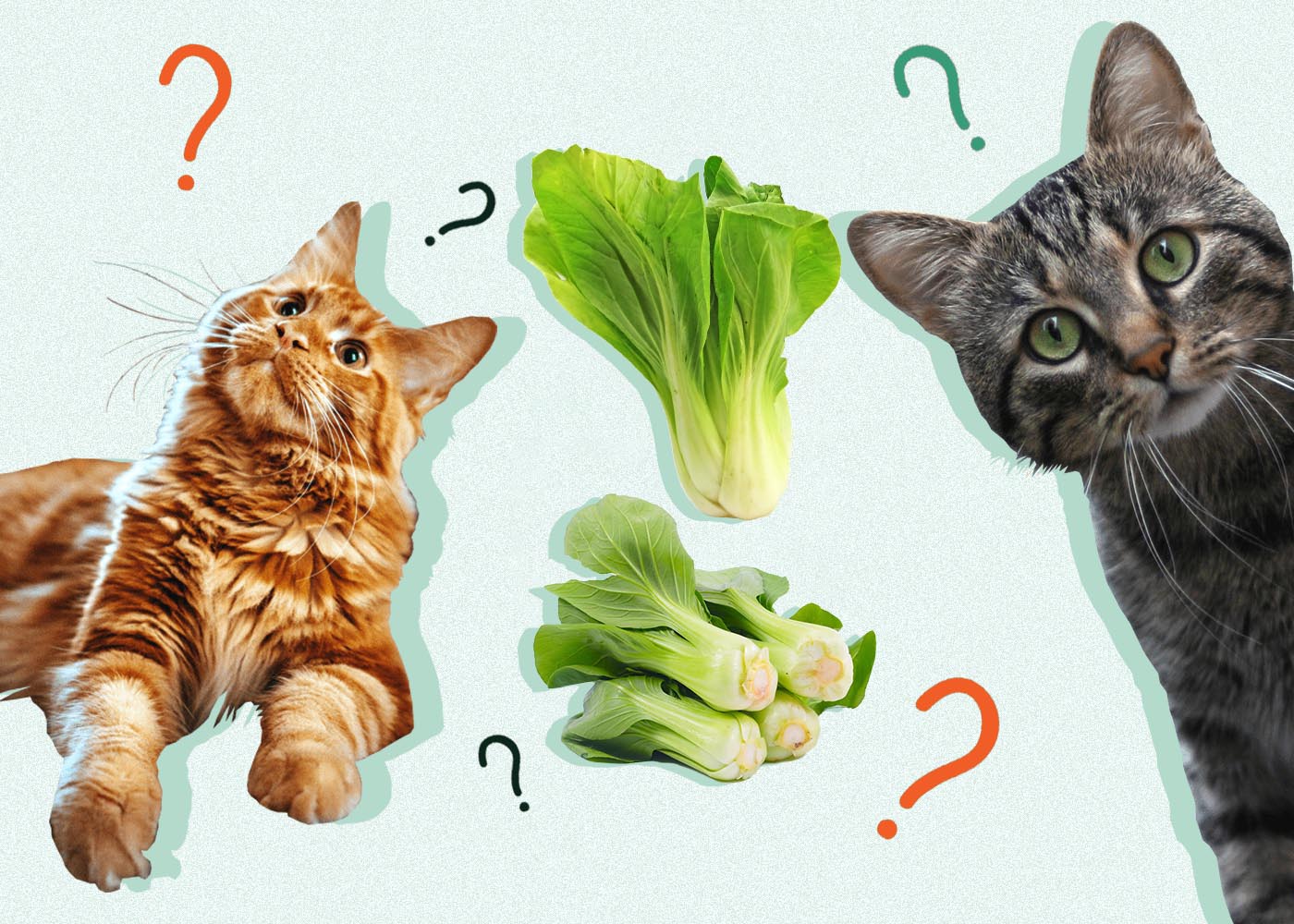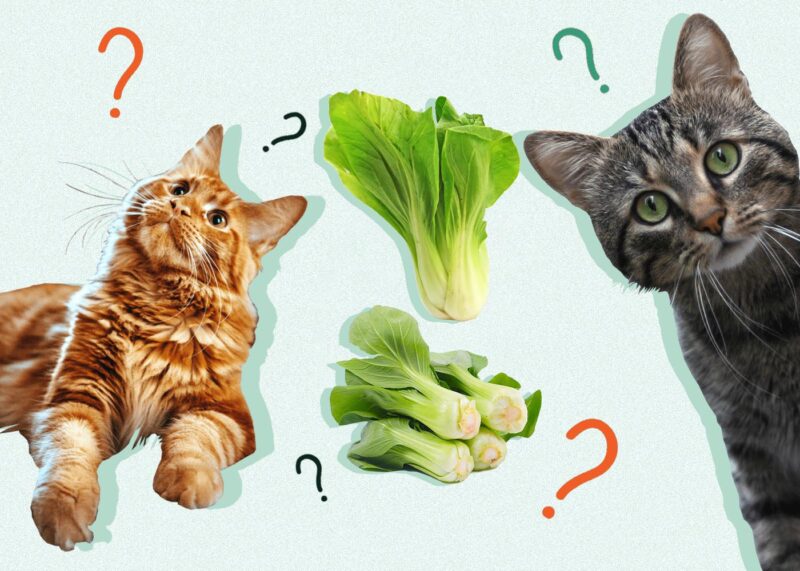Bok choy, or Chinese cabbage, is a vegetable that’s packed with nutrients and is incredibly healthy for humans and safe for cats. So, if you’re preparing a dish with bok choy and your curious cat nibbles on a piece of bok choy, there’s no need to worry.
In fact, you can occasionally give it to your cat as a treat. The only issue is that your cat may not like it at first because it tends to taste bitter. Keep reading to learn more about bok choy and how to feed it to your cat.

Nutrients Found in Bok Choy
Bok choy originates from China, and it’s become increasingly popular in the United States. It’s a member of the Brassica1 family, which includes vegetables such as Brussels sprouts, kale, and turnips.
This vegetable is starting to appear in more local grocery stores. However, if you’re having trouble finding it, your nearest Asian grocery store should have some in stock. Bok choy is healthy for humans because it’s a good source of fiber and contains a lot of vitamins and minerals, including:
- Vitamin B6
- Vitamin C
- Vitamin E
- Calcium
- Folate
- Magnesium
- Potassium
- Selenium
Studies have also shown that regular consumption of bok choy may be linked to reducing the risk of developing certain types of cancer. Bok choy may also help improve bone health, protect eye health, and aid the immune system.
Along with all of its potential health benefits, bok choy can be a healthy snack for cats because it’s a low-calorie food. Since one cup of bok choy contains only nine calories, it can be quite a guilt-free snack for your cat. So, if you have a cat that requires weight management, bok choy can be a safe alternative.
How To Feed Bok Choy to Your Cat
With all the health benefits surrounding bok choy, it may feel like a no-brainer to add it to your cat’s diet. However, there are some safety precautions to keep in mind. First, the best way to prepare bok choy for your cat is to cook it. Its bitter flavor is more prominent when raw, and cooking it can reduce the bitterness. You can steam, boil, or blanch it in water, but avoid using cooking oil.
Serving bok choy whole is much too large of a serving size, and it’s also a choking hazard. To avoid such health risks, only give bok choy to your cat in small pieces. Keep in mind that not all cats can eat bok choy. Some cats may be unable to digest it well, which can cause gas.
Cats with thyroid issues should also avoid bok choy and other cruciferous vegetables. Cruciferous vegetables contain goitrogens, which interfere with thyroid hormone production.
Do Cats Need To Eat Bok Choy?
Although bok choy is healthy for humans, cats don’t necessarily need it in their diets for several reasons. First, cats mainly get their nutrients from meat protein. They can never go on a vegetarian or vegan diet because it’s insufficient for them. They’re obligate carnivores and must consume a high-protein diet containing high-quality meat.
Cats also don’t need a whole lot of variety in their diet. While humans can easily eat new kinds of food without any repercussions, cats have more sensitive stomachs. So, they can get an upset stomach if they’re suddenly introduced to a new food.
If you notice that your cat vomits or experiences diarrhea after eating bok choy, there’s a good chance it’s because they were given too much. If your cat has a bad reaction to bok choy, it’s not worth trying to feed it to your cat again. Since cats’ digestive tracts aren’t designed to consume a lot of vegetables, it’s best to feed your cat a meat-based treat.
Giving cats too much variety can also cause them to grow into picky eaters. They can learn that they don’t have to immediately eat what’s given to them because a new type of food will eventually replace it.

Final Thoughts
Bok choy is a low-calorie vegetable that contains several nutrients and has many health benefits. However, it’s not the best food to give to every cat. It should be avoided entirely if your cat has any thyroid-related health concerns.
Since cats rely heavily on meat protein, bok choy and other vegetables should never make up most of their diet. So, you can always try feeding your cat bok choy, but if they don’t enjoy the taste, there’s no need to make multiple attempts to feed it to your cat. It’s best to move on to a meat-based snack that your cat will be sure to enjoy.












